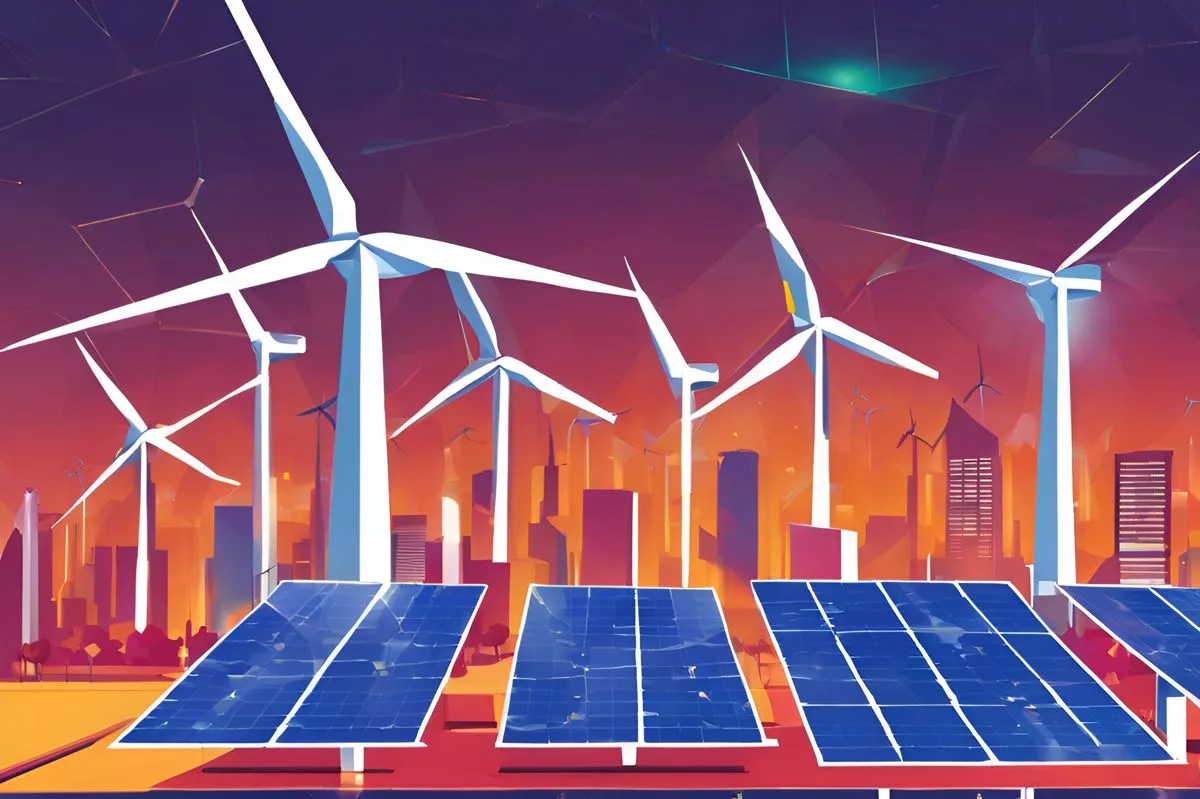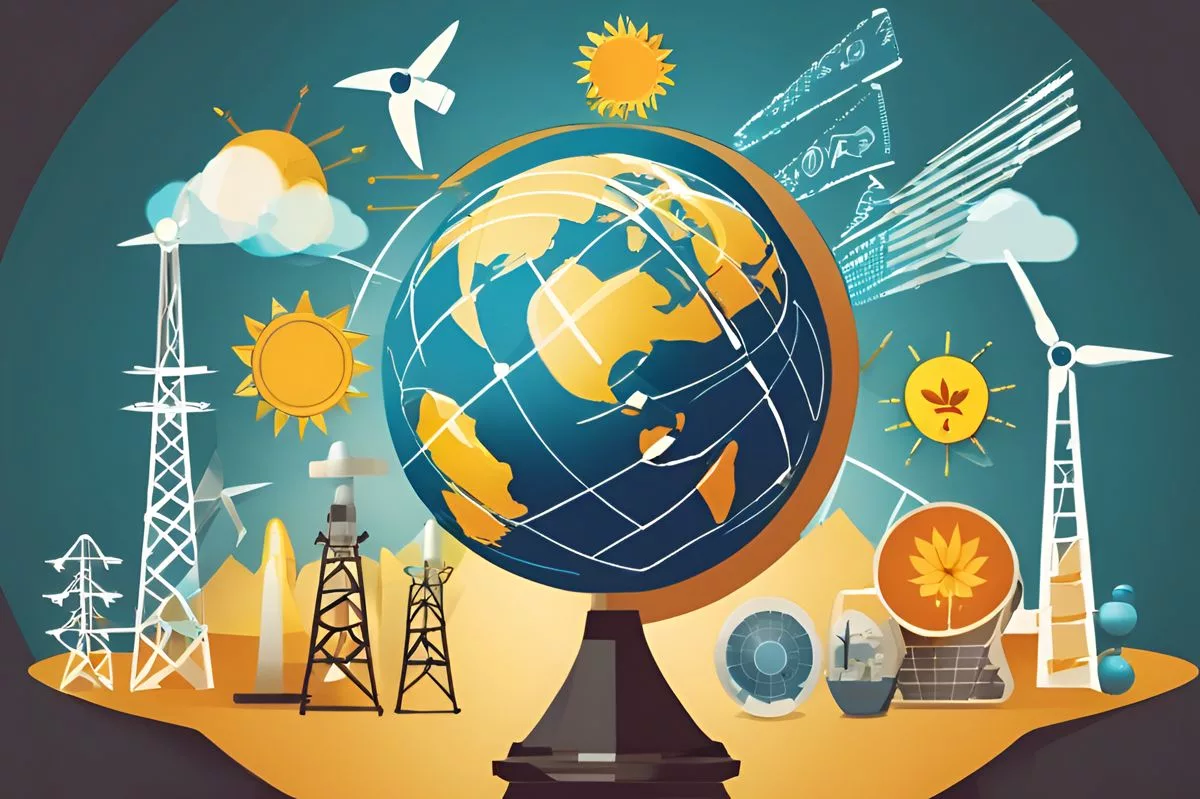South Africa is dreaming big for its energy future, aiming for more reliable power, economic growth, and new jobs. At a lively seminar in Johannesburg, Deputy Minister Samantha Graham-Maré shared this exciting vision, emphasizing teamwork and the use of various energy sources like gas. With over 7GW of renewable energy already in place and more on the way, the country is ready to break free from power outages and create a brighter, greener tomorrow. This journey is a collective effort, filled with hope and determination to make South Africa a leader in renewable energy.
What is the vision for South Africa’s renewable energy future?
South Africa’s renewable energy future envisions enhanced energy security, economic growth, and job creation. With over 7GW integrated into the national grid and more to come, the government’s Renewable Energy Master Plan aims to foster collaboration and utilize diverse energy sources, including gas, to achieve sustainability.
In the bustling metropolis of Johannesburg, the Gallagher Convention Centre hums with anticipation as Deputy Minister Samantha Graham-Maré unveils a transformative vision for South Africa’s energy landscape. Her compelling address at the Renewable Energy Seminar paints a vivid picture of ambition, change, and collaboration in the realm of renewable energy. This sector stands poised to reshape the nation’s economic and environmental future.
The IPP Summit: A New Dawn in Energy Policy
The seminar marked a significant milestone with the inaugural Independent Power Producer (IPP) Summit, orchestrated by the recently established Ministry of Energy and Electricity. This landmark event brought together an eclectic mix of government officials, industry pioneers, and representatives from civil society. Their collective mission was to forge a path toward energy security, economic growth, and job creation. Among the key figures was Minister Ramokgopa, a central player in this energy transformation.
South Africa’s pursuit of energy diversification is a testament to resilience and ingenuity. At the core of this incredible journey are the Independent Power Producers. These trailblazers have broadened the country’s energy portfolio and championed the shift to renewable sources. Their efforts have been crucial in breaking the cycle of debilitating power outages, with the nation now enjoying nearly 200 days of uninterrupted electricity. This achievement owes much to strategic collaboration and relentless dedication, offering a breath of relief to an economy once constrained by power cuts.
Reflecting on 14 years of progress since the inception of renewable energy bid windows, Deputy Minister Graham-Maré celebrated the triumphs of the IPP Office. Globally recognized as a model of excellence, this public procurement initiative exemplifies the power of Public-Private Partnerships in driving economic expansion and job creation. The continual refinement of the bidding process has cemented the office’s role as a catalyst for positive change.
Milestones and Future Prospects
The statistics present a compelling narrative: over 7GW of renewable energy is already integrated into the national grid, with an additional 12GW anticipated from upcoming bid windows. These achievements underscore significant progress, yet maintaining and amplifying this momentum remains vital. Minister Ramokgopa has entrusted Deputy Minister Graham-Maré with a pivotal role—overseeing the South African Renewable Energy Master Plan (SAREM). Far more than a governmental blueprint, SAREM acts as a catalyst for the industrialization of renewable energy value chains, envisioned to enhance economic growth and job opportunities.
The foundational elements of SAREM are nearing completion, pending final approvals from relevant departments. Meanwhile, work on the SAREM Implementation Plan progresses, with its release expected by the year’s end, coinciding with the launch of SAREM itself. This forward-thinking approach highlights a commitment to tangible outcomes and a sustainable energy future.
Parallel to these developments, the Department of Mineral Resources and Energy (DMRE) undertakes a comprehensive review of the Integrated Resource Plan (IRP) for 2023. This review, informed by feedback from diverse stakeholders, aims to refine the plan’s scope to meet the nation’s evolving energy demands. The final IRP is anticipated to reach the Cabinet for approval before the fiscal year concludes.
Strategic Planning and Collaborative Initiatives
A crucial element in South Africa’s energy strategy is the Gas Master Plan. This plan, involving extensive stakeholder engagement and rigorous model simulations, seeks alignment with the updated IRP. It highlights the role of gas as a transitional fuel for power generation, supporting the national strategy to produce 6,000 MW of gas-powered electricity.
Deputy Minister Graham-Maré’s vision for the sector is ambitious yet achievable. She sees the renewable energy sector as a cornerstone of South Africa’s future, supported by increasing investments. Collaboration forms a crucial part of this vision, and she looks forward to forging partnerships with stakeholders to overcome challenges and seize opportunities for economic advancement and job creation.
The seminar’s opening session showcased governmental achievements, featuring insights from Minister Dr. Kgosientsho Ramokgopa, IPP Office Head Mr. Bernard Magoro, and Mr. Segomoco Scheppers, Head of the newly established National Transmission Company. Their narratives provided a comprehensive backdrop for the summit’s discussions, highlighting past achievements and future pathways.
A Dialogue for Progress
In a refreshing shift from conventional discourse, the seminar’s second session gave the private sector a platform to share their perspectives. This active listening approach underscored the government’s commitment to learning and adapting, acknowledging that implementation has long been a challenge. However, with introspection and openness to change, there is optimism for improvement and progress.
As the seminar progresses, a sense of optimism fills the air. The promise of renewable energy illuminates the path ahead, aligning with the aspirations of the Government of National Unity. Deputy Minister Graham-Maré, a proud member of this collective, exudes confidence in the sector’s potential to achieve the nation’s goals.
While much has been accomplished, the journey toward a sustainable future is ongoing. The Deputy Minister’s call to action resonates deeply, urging stakeholders to continue striving for excellence. The path is challenging yet promising, driven by a shared resolve to do better. As dialogues continue, the spirit of collaboration and innovation remains at the forefront, guiding South Africa toward a brighter, more sustainable tomorrow.
“`markdown
What is the vision for South Africa’s renewable energy future?
South Africa envisions a renewable energy future focused on enhancing energy security, driving economic growth, and creating jobs. The government aims to integrate more renewable energy into the national grid, building upon the already established over 7GW, and collaborating with various energy sources to achieve sustainability.
What was discussed at the IPP Summit?
The Independent Power Producer (IPP) Summit highlighted collaboration among government officials, industry leaders, and civil society representatives. The focus was on forging pathways toward energy security, economic growth, and job creation, with key insights shared by Minister Ramokgopa and Deputy Minister Graham-Maré regarding the importance of Independent Power Producers in diversifying the country’s energy portfolio.
How much renewable energy is currently in South Africa’s national grid?
As of now, over 7GW of renewable energy has already been integrated into South Africa’s national grid, with an additional 12GW anticipated from upcoming bid windows. This significant progress aims to reduce power outages and enhance the overall energy landscape of the nation.
What is the South African Renewable Energy Master Plan (SAREM)?
The South African Renewable Energy Master Plan (SAREM) is a comprehensive blueprint designed to industrialize renewable energy value chains, fostering economic growth and job creation. With elements nearing completion and an implementation plan expected by year’s end, SAREM serves as a catalyst for South Africa’s renewable energy ambitions.
What role does gas play in South Africa’s energy strategy?
Gas is viewed as a transitional fuel critical to South Africa’s energy strategy. The Gas Master Plan aims to produce 6,000 MW of gas-powered electricity, further supporting the country’s goal of diversifying energy sources and aligning with the updated Integrated Resource Plan (IRP).
How is the government engaging the private sector in the renewable energy dialogue?
The government is actively engaging the private sector through platforms like the Renewable Energy Seminar, encouraging them to share perspectives and insights. This open dialogue is part of a commitment to learning and adapting, aiming to address implementation challenges and foster collaboration for a sustainable energy future.
“`












